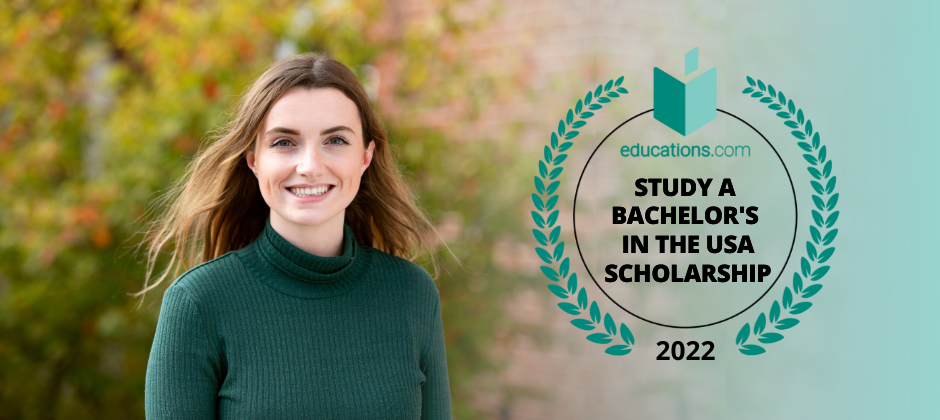Are you a student recruiter looking to strengthen your marketing campaigns? Are you looking to reach out to an even more targeted international audience? This guide will take you through how to create a great student persona and can be used alongside our free template to help you get started, or revamp your personas.
This article looks at:
What are the Benefits of Student Personas?
What Should You Include in a Student Persona?
Where Do You Find Information for a Student Persona?
What is a Student Persona?
In essence, a persona is a fictional character. It is a composite of characteristics and trends among a target audience. A strong student persona will include likely learning and development goals as well as possible challenges and barriers to accessing higher education.
You can create as many student personas as you need. Personas can be based on geographical regions, the level of education that a student will likely be seeking or their age range. There are as many possible student persona types, allowing you to refine and mould your personas to help your school achieve its goals.
What are the Benefits of Student Personas?
Personas can help you to develop a deep, nuanced understanding of your target audience. They can help you to understand their needs and wants.
-
A deeper understanding - This can help your recruitment team reach out in a more strategic way to better connect with potential students
-
Tailored campaigns - Student personas help you to create engaging tailored campaigns that are finely-tuned to your audience’s needs. This can help them on their student’s journey as they make a decision with lifelong impacts.
-
Conversion rates - Gaining that deeper understanding and tailoring your marketing strategy accordingly lets you enjoy higher conversion rates and greater engagement with your campaigns.
What Should You Include in a Student Persona?
We have created undergraduate and postgraduate student persona templates aimed specifically at higher education.
Each of these templates’ categories can provide valuable information about your target audience. Put together, these categories produce the character that becomes a student persona - both undergraduate and postgraduate.
-
Demographics
Who is your target audience? Think about their age, their location, their gender and possible income levels for this section.
-
Educational Background
Think about their rounded academic experience, not just educational, but voluntary work, projects undertaken and attributes that shape your ideal candidate.
-
Sources of Influence
Consider what is driving the student in their decision making process. What is likely to be a deciding factor for them? Understanding influential sources can help you choose your marketing channels and partners.
-
Goals of Studying Abroad
The goals of studying abroad can shift a lot between personas. Some students will be looking to better the job opportunities back home, others will be looking to immigrate, the list goes on. Having a strong persona can help you to embed whatever broad goals your persona may have into your marketing even more deeply.'
-
Barriers to Studying Abroad
Think about what might make it difficult for your persona to study abroad. Consider how problems like visa processes, finances and logistical difficulties could all act as barriers.
-
Overcoming These Barriers
A good persona can lead to a productive brainstorming session on how to overcome these barriers. Promoting existing support services at your school is a good way forward, as is potentially creating additional content that can be of help to prospective students.
-
Why Your Institution?
This one is completely individual to each and every school. No two schools are the exact same. When answering this question think about what makes your school unique and how this can be used to appeal to your target persona.
-
Messaging
This section will help you to provide a coherent, relevant and specific marketing strategy for your target persona. Doing this robustly and routinely can help to build a cohesive image in the minds of your target persona.
-
Elevator Pitch
This is just as crucial as good messaging. A short, punchy, engaging pitch should be tuned to resonate deeply with your target persona. A strong elevator pitch can serve as the backbone of targeted marketing campaigns.
-
Real Quotes
Quotes drawn from your target market can bring a real dimension to your persona. Quotes can be taken from qualitative surveys, interviews and most other forms of data that go beyond numbers and statistics.
Where Do You Find Information for a Student Persona?
Information for student personas can come from almost anywhere. As long as the information is good, of a high quality and scalable, it can be used to help build your persona. Here is how you can easily collect great, usable data for your student persona.
-
Diversity data
This should be your first port of call. Many schools keep data on the identities and backgrounds of their students and applicants. This data can help you to see if you are appealing to your persona. If you are, how can you strengthen this appeal? If you are not, then you need to look at why. Here are some of the top ways we’ve gained insight to shape our own student personas at educations.com.
-
Surveys
These can range from quick and easy questionnaires through to more in-depth questioning. Surveys should be directly tailored to those who fit the persona that you are trying to build.
-
Student profiles
Looking back at previous students and seeing what did or did not draw them to you can help you to build a strong persona, particularly when it comes to overcoming barriers and building a good elevator pitch.
-
Focus groups and in-depth interviews
A focus group comprising people from your target persona can help you to put together a broad yet scalable picture of your target persona. In-depth interviews can be good for one-to-one insights. A well-selected focus group can deliver up-to-the-minute information on what your target persona is looking for in higher education and what they see as being a barrier to getting to it.
-
Reaching out to schools
Connecting with schools and asking them about what their students are looking for in higher education, what motivates their final decision and what their concerns are when it comes to their education can allow you to fine-tune your persona even more. By speaking directly with the schools from which your students in your target persona are coming, you can pre-empt their thought processes.
-
Competitor research
Taking a moment to survey the landscape can also be useful. Look at other schools that attract students from your target persona. Look at what they are doing and how they are doing it. Think about what makes it successful and how it could be replicated at your school.
-
Student fairs
Be they welcoming events, employment events or personal and professional development days, student fairs give you a great opportunity to reach out to your target persona and speak to them directly. Informal chats at events such as these can give you direct insights into and feedback from your target persona. This is rich information which can feed straight back into your persona, forming and shaping it.
-
Web analytics
Web analytics can be your secret weapon when it comes to student recruitment. A good analytics tool, like Google Analytics, can show you who is visiting your site and its pages, where they are from, their time spent on each page they visit and can even tell you of the bounce and exit rates.
-
SEO
If a page which should, on paper, be successful is not proving to be so, then combine your analytics tool with a good keyword research tool like Ahrefs. This can tell you what people are searching for when they find your page and what the most popular search terms for pages similar to yours are. Once you have this information, you can optimise a page so that it appears in more relevant searches.
Are you ready to start creating great student personas? Download our undergraduate and postgraduate templates today.





%20-%202.png)

